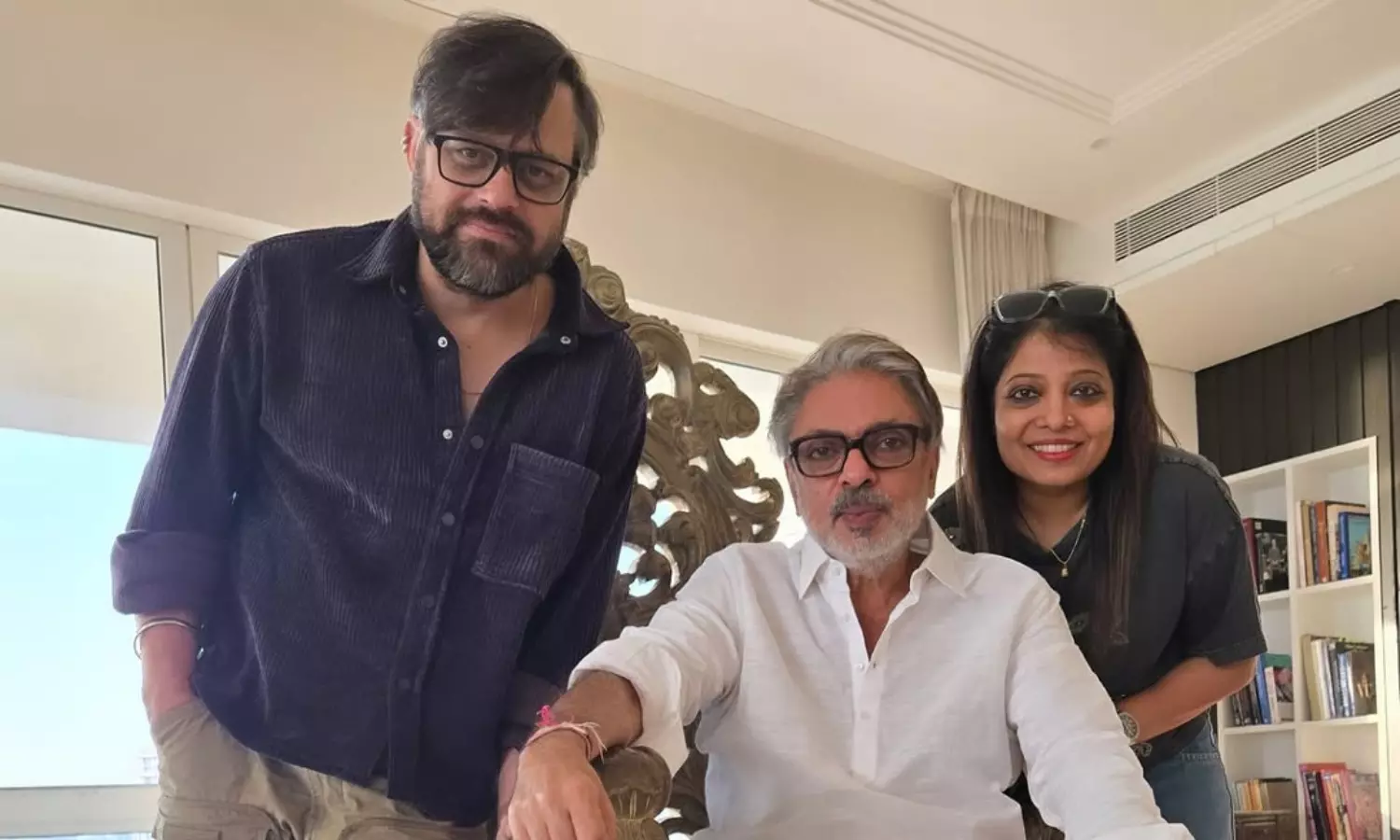We avoid ego clashes and credit disputes: Sid-Garima
Siddharth Singh and Garima Wahal open up about their creative chemistry and share insights into their directorial venture—Saale Aashiq.

Meet Sid-Garima, the dynamic duo behind some of Bollywood’s most iconic lyrics, including those in Sanjay Leela Bhansali’s Bajirao Mastani, Padmaavat, and Ram Leela. In an exclusive chat with Deccan Chronicle, Siddharth Singh and Garima Wahal open up about their creative chemistry and share insights into their directorial venture—Saale Aashiq.
How do you collaborate as a duo and what is the secret to your successful creative partnership?
Successful creative partnerships involve conflicts, which help keep the relationship fresh. Sid and I have an ideological match, being on the same wavelength mentally. We started collaborating at a radio station, working on content and even fighting over ideas. We resolve our conflicts internally, ensuring the world only sees a united front.
How do you balance your creative vision with a filmmaker’s feedback and requested changes?
We are open to changes, knowing we are writing for someone with a different vision. Our goal is to merge our vision into one, so the person we are working for doesn’t have to navigate two perspectives. A key aspect of our successful partnership is never colliding in front of others. We avoid ego clashes and credit disputes, standing united as a team. It’s a true partnership, where we support each other.
What inspired you to tackle the sensitive topic of honour killing in your upcoming film, Saale Aashiq?
Our inspiration came from real-life honour killings, which have increased by 700% in India over the last 7-8 years. As filmmakers and citizens, we wanted to counter this problem. We drew from our experience writing Ram Leela, where the lovers ultimately perish. We asked ourselves, “Why should lovers have to die?” We wanted to create a story where lovers fight to be together, no matter the cost. Saale Aashiq will have a happy ending, but we know honour killing is a complex issue. As fiction creators, we are trying to imagine a scenario where lovers can overcome adversity and live happily. If we inspire even one lover, we have done our job.
How do you balance traditional storytelling with contemporary issues in your films and lyrics?
We are sensitive to our environment and the issues affecting our country, which naturally reflects in our work. We are avid readers, influenced by Hindi poetry and literature, which provides the foundation for our language. We stay updated with current events, social media, and modern culture, while also drawing from our roots. When writing songs, we focus on creating situational, relatable content, rather than just chasing hits. We have been fortunate that our deep, Hindi poetry-infused songs are appreciated by the youth, despite their increasingly westernised influences.
Your directorial debut, Dukaan, marked a new milestone in your career. What was the most challenging aspect of this project?
The primary challenge with Dukaan was telling the story of a woman who confidently says she doesn’t want children, which is unconventional. Convincing people and having the courage to tell this story was a challenge. Additionally, shooting the film with a non-star cast was another significant challenge.
Penning lyrics also means you also have to convince a lot of people, right?
Convincing producers, music label owners, and actors can be challenging. Sometimes, songs don’t click initially, but years later, they become trending reels. Like ‘Har Har Gange’, which was difficult to convince people about, but now it’s making a big comeback on social media. When reels find a place in the audience and go viral, it’s a validating feeling, like our conviction was right. Even 'Naino Wale Ne' from Padmaavat, which wasn’t initially in the film, caught on six years later on Instagram. It just goes to show, don’t underestimate the youth’s intelligence, anything can happen at any time.
You have worked on some of the best songs for Sanjay Leela Bhansali. Tell us what it is like to work with him.
Working with Sanjay sir is the most fulfilling process. He understands the value of a line and good lyrics, being a composer himself. He composes the lyrics in a music setting, which is pure magic. It’s like being in a divine setting with tabla, harmonium, and guitar. With Sanjay sir, creation is cosmic energy, it’s beautiful. Despite being poetic, we tackle hard-hitting subjects, and I am sure we will come up with something new soon.
Are you planning anything that would be poetic?
Yes, we are planning something poetic. We are developing a musical story about a boy’s journey discovering his immense musical talent. We also want to do a love story with a musical background. All our films are musicals, like Dukaan and Saale Aashiq. We can’t think of stories without music. Our storytelling is lyrical, and we try to shoot it to a certain beat.
So what’s next for Siddharth and Garima?
We are writing for other people too. We have a period film based on a big historical figure. There’s also a relationship thriller and our own family comedy-drama film in development. It’s a humorous story about an average Indian, with pathos and relatable characters. We are excited to treat this subject differently. Additionally, a big song with Dharma is releasing this month, which is very special.
